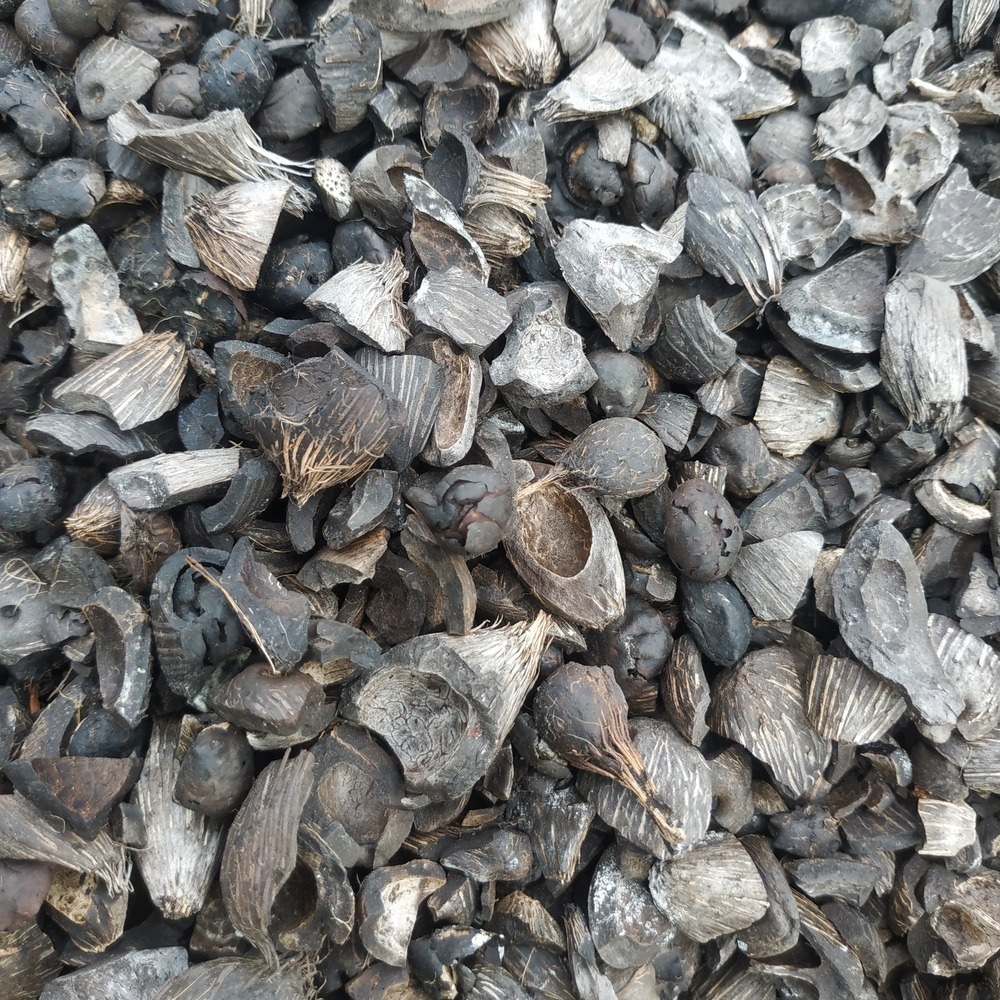A new paper appearing in the journal Environmental Research has explored the production of biodiesel from palm kernel shells, an agricultural waste stream. Scientists from Malaysia, Brunei, and Oman have contributed to the research.

Study: Life cycle assessment of biodiesel production by using impregnated magnetic biochar derived from waste palm kernel shell. Image Credit: Ibra Images/Shutterstock.com
Biodiesel: A Key Energy Product
Biodiesel offers several benefits over traditional fossil-fuel-based diesel in terms of sustainability and environmental friendliness. This green fuel product is biodegradable, renewable, and biocompatible, with significantly less pollution produced during its manufacture and commercial use.
According to research by the Environmental Protection Agency, biodiesel emits 11% less CO and 10% less particular matter than conventional diesel, making it a cleaner product. Moreover, a study commissioned by the Department of Energy and Agriculture has indicated that net CO2 emissions are reduced by 78% compared to conventional fossil fuel-derived diesel.
Biodiesel can be produced from a wide range of crops and agricultural waste products. Utilizing waste streams from the agricultural and food industries is highly beneficial as it reduces the amount of land use in favor of growing food and animal feed. Moreover, valorizing waste streams is in line with the aims of the circular economy, which seeks to reduce waste by turning it into value-added products.
Whilst biodiesel is highly promising as an alternative to fossil fuels, there are some key challenges associated with its production which must be overcome to ensure its full-scale commercial viability. Many of these issues are technical in nature and are related to homogenous catalytic technologies. New strategies have been developed in recent years, utilizing a range of organic products for biodiesel production.
Biodiesel production is also more expensive than diesel due to higher capital costs due to the cost of oil feedstock. Additionally, equipment for manufacturing biodiesel is more expensive than conventional equipment. However, biodiesel is gaining popularity for its environmental benefits, with many governments mandating its use and aiming to phase fossil fuels out by the end of this century.
Producing Biodiesel with Palm Kernel Shells
Palm oil is a widely used product in the food industry. Its manufacture produces enormous amounts of waste, with palm kernel shells being one of the main sources of this waste. A recent study was published that investigated the production of biodiesel using impregnated magnetic biochar derived from this key waste product.
Waste palm kernel shells can be utilized as sustainable catalysts in biodiesel synthesis, being infinitely more reusable and more environmentally friendly than conventional homogenous catalysts. Conventional catalysts include KOH, NaOH, and H2SO4, which require specialist handling and safety procedures and specific regulations to manage their release into the environment.
The size of the palm oil industry and the vast amount of waste kernel shells produced annually provide significant opportunities for the sustainable production of biodiesel and improve the circularity of the palm oil industry. Incorporating magnetic properties into palm kernel shell biochar using magnetic field recovery is an intriguing and innovative strategy, and this process replaces magnetic separation.
The Research
The new research has applied lifecycle assessments to the production of biodiesel using waste palm kernel shells. Lifecycle assessments evaluate the entire environmental impact of a product by analyzing processes, products, and activities, both before, during, and after manufacture. Resources, materials, energy, and emissions are assessed to build a holistic picture of this impact.
Currently, life cycle assessments on biodiesel production systems that utilize magnetic biochar catalysts are limited, according to the paper. This lack of research on the lifetime impacts of these processes limits knowledge of their sustainability, which is crucial to evaluating their suitability for green biodiesel production.
The aim of the study is to investigate and select suitable sustainable methods for employing waste palm kernel shell biochar catalysts for biodiesel production and provide key information on the sustainable management of waste produced by the process.
The team behind the research has stated that the paper contributes to the United Nation’s SDGs, specifically SDG 7 and SDG 12 (affordable clean energy and responsible consumption and production.) The research is firmly in line with the aims of the circular economy.
Study Results
Two cases were analyzed using lifecycle assessments, with Eco-indicator 99 methods used to compare the impact of both cases. Case 1 involved no processing of raw palm oil, which meant that it had less environmental impact than Case 2 as it only used refined palm oil to produce biodiesel.
Transesterification processes were identified as a main hotspot based on baseline midpoint indicators. The lifecycle assessment revealed that the transesterification process has a significant environmental impact, especially on aquatic environments, due to contaminant release.
It has been recommended that, to achieve a realistic analysis, the recycling and reuse of palm kernel shell catalysts should be included. By implementing this strategy, environmental impact and cost can be significantly reduced. Finally, the authors have recommended that comprehensive economic analyses of the process should be continuously researched to provide deeper sustainability insights.
More from AZoM: What is Glow Discharge Optical Emission Spectrometry
Further Reading
Erison, A.E.A et al. (2022) Life cycle assessment of biodiesel production by using impregnated magnetic biochar derived from waste palm kernel shell Environmental Research 1114149 [online, pre-proof] sciencedirect.com. Available at: https://www.sciencedirect.com/science/article/pii/S0013935122014761?via%3Dihub
Disclaimer: The views expressed here are those of the author expressed in their private capacity and do not necessarily represent the views of AZoM.com Limited T/A AZoNetwork the owner and operator of this website. This disclaimer forms part of the Terms and conditions of use of this website.